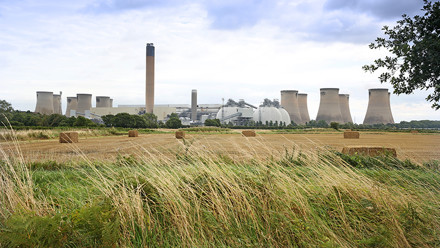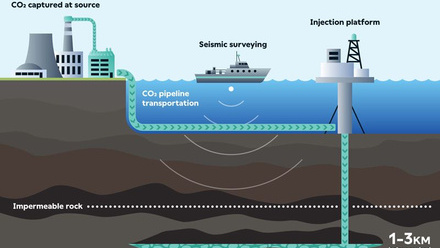UK Public Accounts Committee raises concerns over biomass energy
The parliamentary committee says more robust schemes are needed to prove the biomass is sustainably sourced.

Current arrangements for metrics on biomass’ sustainability rely on self-reporting and third-party schemes. The Public Accounts Committee (PAC) says neither the Department for Energy Security and Net Zero (DESNZ) or Ofgem know whether this is effective.
Over the last three years, £22bln in government support has been given to business and households towards biomass fuel, with £6.5bln dedicated to company Drax.
The Government’s support for biomass report is critical of the biomass and carbon capture and storage technology (BECCS) sustainability criteria, as well as the value for money it provides the taxpayer.
Sir Geoffrey Clifton-Brown MP, Chair of the Committee, summarises, 'Our report also raises further questions around what role will be played by BECCS, long-viewed as crucial for net-zero but with no movement visible on the horizon to start to build it into the UK’s infrastructure…gaining full confidence around the sector’s supply chains is work that must be carried out if government is to truly satisfy itself that biomass is not a white elephant.'
The report recommends DESNZ should have contingency plans if BECCS is no longer viable.
The original 2030 target for BECCS is not likely to be met as the government have not settled on a target date for its first site.
A recent KPMG review of Drax has also come under scrutiny in the report and the PAC recommends the energy company release the full report to Parliament.
Mark Sommerfeld, UK Director of the Carbon Capture and Storage Association (CCSA), responds, 'The CCSA and industry fully support placing sustainability at the core of BECCS deployment. The sector adheres to internationally recognised carbon accounting methodologies and science-based standards to ensure robust sustainability governance. These frameworks are verified through independent certification schemes, such as the Sustainable Biomass Program (SBP), which often exceed even government requirements.
'The industry has also welcomed the government’s commitment to evolving these governance frameworks and remains eager to collaborate on advancing this vital area.'
Sommerfield adds, 'The biomass sector is clear: the future lies in the successful delivery of sustainable BECCS. The long-term goal is to establish a self-sustaining market where carbon removals are driven by market demand rather than government support. However, to reach this point, urgent decisions are needed in the upcoming Spending Review to enable the progression of Track 2 and Track 1 expansion projects, along with others delivering on similar timeframes.
'Now is the time to ensure BECCS, alongside other CCS applications, is advanced in the right way, maximising its contribution to the UK’s net zero ambitions.'












